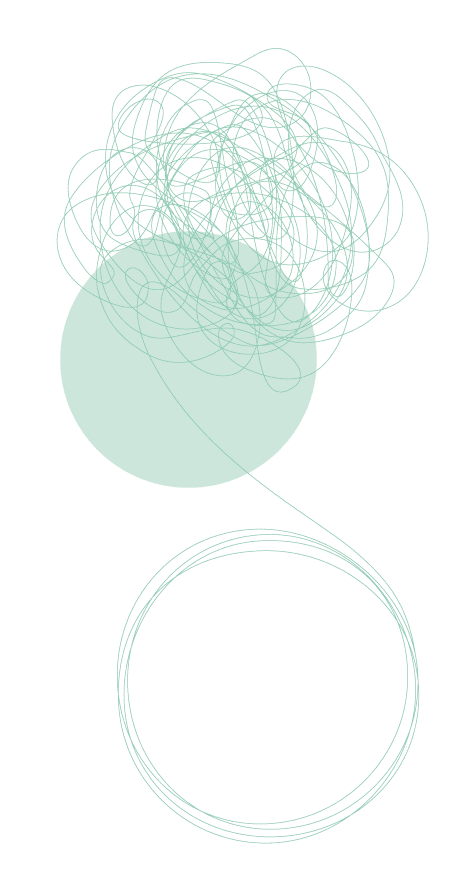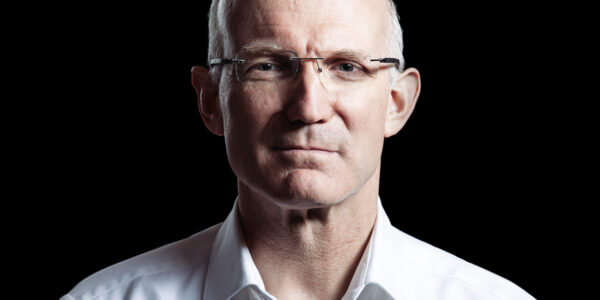
Why complexity should no longer be seen as a problem regarding theory but as a solution involving trust
Hardly any other characteristic – especially when it increases – can be read about in publications and heard about in lectures as frequently as complexity. I don’t know about you, dear readers, but lately I have been meeting more and more people who either tell me with resignation that you can’t stop (an increase in) complexity anyway – so it is best to accept your fate – or who, with a slightly aggressive undertone, urge me to finally do something about this increase – after all, it is apparently “manageable.”
We (whoever that may be at that moment) are all called upon to become masters of complexity as quickly as possible. Constantly managing complexity is the only way to a successful future. Are you familiar with this situation?
Such conversations sometimes make me angry, namely whenever I get the impression that the person I’m speaking with may want to manipulate me and hold me responsible for a condition that is presented to me as a threat.
But let’s approach it in a structured way and first think about the word complexity itself. The variety of definitions I encountered while researching the term solidified my suspicion that many people who use it don’t know exactly what they’re talking about. Fields of science, whether mathematics, physics, biology or chemistry, have been struggling for decades to give a precise definition. Regardless of these sciences, other definitions of the term, such as “system complexity” are given in literature.
You will recognize non-trivial perspectives if you study the authors: Klaus/Liebscher (1976), Luhmann (1980), Ulrich/Probst (2001), Willke (2006), and Schuh (2017). However, differing definitions from science and literature all have one thing in common. At least three categories provide information about the controllability of a system: simple, complicated and complex systems. In complex systems (Dave Snowden also defines a chaotic system in this field with his Cynefin framework) causalities are not obvious.
Thus, prediction, predictability and control are excluded. So, one can conclude: There is obviously a part of our environment where things happen that we cannot explain, reasons for processes that are beyond our cognition. “That’s trivial!” you may want to exclaim. What is the problem with using the term complexity? The short answer is that if using the technical term creates a situation in which the person being addressed reacts according to “flight or fight!”, we know from the field of psychology that the two reactions are not beneficial. Both resignation and attack are a result of stressful situations – they impair clear thinking. Let’s take a differentiated look at the use of the term and try to understand what effect it can have.
The challenges start with reflecting on your own lack of knowledge on the topic. You remember the Aristotelian intellectual probity of knowing what you are talking about when you say something. I think the person who uses the word complexity has to put up with the question: “What are you actually talking about? What do you actually mean?” Don’t use the word if you mean “complicated.” Here, there also is problem between the receiver and transmitter. The transmitter does not determine the meaning of a message, but rather (also) the receiver. So, I should try to clarify differences in meaning when I suspect that I am not understood.

Only after clarifying who feels affected by which form of complexity, does it make sense to question how complexity should be dealt with.
Frank Krause
senior partner, staufen.ag
It gets worse! It is very bad if the person being addressed has the impression that he or she is not affected by complexity at all. Right – complexity is subjective! So, the question is: What right do I have to conclude that others are ignorant due to my own ignorance? What is complex for me may be simple or complicated for others and vice versa. Only after clarifying who feels affected by which form of complexity, does it make sense to question how complexity should be dealt with. However, the claim that it should be dealt with and successfully disallows any rhetoric of fate. Complexity is not destiny. Just because the path in search of the truth is paved with errors and disappointments, does not mean that you should give up the search.
For this purpose, you should avoid addressing with the first person plural. “We should…”, “We ought to… ” – then I ask myself, who is actually meant by “we”? We Germans, we Europeans, the entire world? Stay grounded and honestly assess your options. You will realize that the fastest way to make someone flee or go on the attack is to integrate them into a group of the ignorant, to explain to them with bad definitions what they don’t understood, and in the end to leave them alone hopeless with no control. So, I call out to all the “lovers” of complexity: Stop it! It does not motivate others to focus on the topic.
The solution lies in personal communication. It establishes trust. Why is trust so important, especially when it comes to this topic? When solving complex issues, you depend on your audience to start supplementing their lack of knowledge with positive speculation right when the information you offer no longer “stands up”. People must be able to believe you – to believe something to be true, which you cannot prove (right) at that moment. As long as the results of your experiments to seek insight or clear knowledge about a future state, are still uncertain, this is the only factor for success you have. Therefore, managing complexity is a matter of trust, not a matter of information.
Listen in!
Podcast Episode with Frank Krause
Listen to our senior partner, Frank Krause, in his podcast series ‘Denkanstoß’ [“Food for thought”] as he blazes a path through the jungle of topics that he encounters in his everyday life as a consultant, and get inspired to deepen your understanding of the questions he’s asking. He invites you to consider current terms, topics, and ideas. Metaphorically speaking, recognize the forest and its trees; that’s the goal of this podcast series.
Our podcast is mainly available in German. For each episode we have a written blog article in German and English available.

STAUFEN COLUMN:
WHO WOULD HAVE THOUGHT SO?
IS COMPLEXITY OUR DESTINY?
You might also be interested in

Are hierarchies still appropriate nowadays?
I don’t know about you, but lately I’ve been meeting more and more people who say to me: “Mr. Krause, the concept of hierarchies is out of date – why are they still necessary? Now that we have a modern work environment.” Frank Krause, Senior Partner at Staufen AG, talks about the meaning of hierarchies.
Read more
Leadership provides orientation especially when the facts are missing
Leadership provides orientation especially when the facts are missing. Leaders make decisions – mostly based on facts. Those who do not make decisions do not provide orientation. What type of cometence enables us to act? What are we obliged to do if no facts are available?
Read more
We are in danger of not learning from the crisis
Flashback: You were advised more than 20 years ago to adopt a solution that would improve the process landscape. The solution consisted of an effect cycle involving three reinforcing measures. The goal? To reduce everything that the customer is not willing to pay for and thereby shorten the lead time. You called this form of potential “waste”.
Read more

